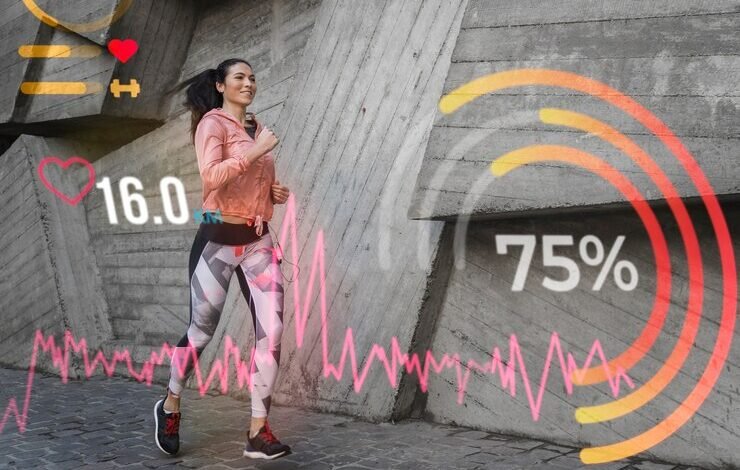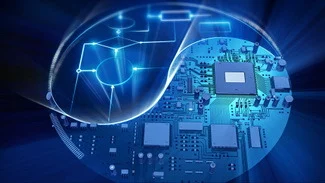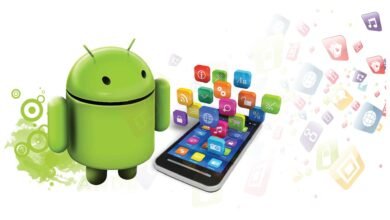How Are Wearables Changing: Fitness Trackers vs. Health Monitors
Fitness Trackers vs. Health Monitors

Have you ever found it excellent that such health information can come from something worn on your wrist? By 2024, the global wearable tech market will surpass 800 million units. These gadgets go beyond fashion as daily essentials with features like step tracking and early illness detection already built-in to wearable technology devices.
But is wearable technology headed toward becoming our health guardians as well?
What is a Fitness Tracker?
A fitness tracker, in its essence, is a wearable device designed to monitor various aspects of physical activity. It can track steps taken, distance traveled, calories burned, and even sleep patterns. These nifty gadgets come in wristbands, smartwatches, or clip-on devices, seamlessly integrating into our daily routines.
Features of Fitness Trackers
Step Tracking
Fitness trackers’ primary function is step counting. These gadgets are designed with precision to log every step when running or walking outdoors. Whether you’re a treadmill jogger or a park hiker, you can trust these devices to track your every move accurately!
Heart Rate Tracking
Fitness trackers now often include heart rate sensors, empowering users to keep an eye on their pulse in real time. This allows for a more accurate assessment of the degree of effort put forth during workout sessions. You’re in control, and you can now gauge the results of your training sessions as they happen, giving you a clear indicator of progress during each one.
Sleep Monitoring
Fitness trackers with sleep monitoring features recognize the crucial role sleep plays in our overall well-being. By monitoring sleep cycles and providing quality insights, they enlighten users about the importance of good sleep. However, it allows them to make well-informed choices about their daily habits.
What is a Disease Detector?
While fitness trackers focus primarily on physical activity and wellness, disease detectors are a newer entrant in the wearable tech arena, aiming to revolutionize healthcare. These devices are designed to monitor various health parameters continuously, detecting early signs of potential diseases or abnormalities.
Features of Disease Detectors
Health Parameter Monitoring
Disease detectors go beyond simple fitness tracking, measuring various health factors such as blood pressure, blood glucose levels, and electrocardiograms (ECG). This comprehensive approach enables early detection of health problems, provides security, and allows people to seek prompt medical attention.
Health Insights and Alerts
In contrast to conventional fitness trackers, disease detectors empower users by leveraging their data to provide individualized health insights and alarms. These devices alert users to variations. These abrupt jumps in blood pressure or abnormal cardiac rhythms, give them the control to take preventative action.
Integration with Healthcare Systems
Many disease detectors seamlessly connect with healthcare systems and electronic health records (EHRs), enhancing user experience and enabling efficient healthcare management. This integration fosters a sense of reassurance, facilitates better communication between patients and healthcare professionals, and expedites the diagnostic and treatment process.
The Evolution of Wearable Tech: From Fitness to Health Monitoring
Combining AI & ML
The cutting-edge technologies of AI and machine learning now power wearable devices. These algorithms, capable of processing vast amounts of health data, are transforming the healthcare landscape. They enable early illness diagnosis and provide personalized health recommendations, marking a significant step forward in the field.
Hybrid Devices
With the advent of hybrid devices, the line between fitness trackers and illness detectors is blurring. These all-in-one gadgets, equipped with comprehensive health monitoring features, are gaining popularity. They offer heart rate monitoring, activity tracking, and illness detection, providing users with a holistic view of their health.
Customers benefit from the convenience and ease of use of wearable technology, which combines heart rate monitoring, activity tracking, and illness detection into one complete solution, giving them a comprehensive overview of their well-being.
Remote Patient Surveillance
Wearable technology is revolutionizing healthcare delivery by enabling remote patient monitoring. This innovation empowers patients to track key health indicators quickly, leading to more proactive and personalized care. Medical professionals can now intervene and modify treatment programs as needed, a particularly beneficial feature for chronic disease sufferers requiring ongoing monitoring.
Cutting Edge Sensor Technology
Wearable technology continues to advance thanks to advances in sensor technology that allow more precise tracking of various health factors. Sensors such as electrodermal activity sensors (EDA), photoplethysmography (PPG), and electrocardiography (ECGs) have now become mainstream components in wearable devices for comprehensive health monitoring.
Emphasis on Healthcare Prevention
Wearable technology has led the charge in revolutionizing healthcare toward preventative medicine by providing users with proactive ways to preserve and delay illnesses. By giving consumers helpful health data, wearable gadgets encourage healthy lifestyle habits and prompt them to seek medical help immediately if required.
Smooth Integration with the Healthcare Environment
As wearable technology becomes more sophisticated, its potential to revolutionize healthcare and its seamless integration into larger healthcare environments become crucial.
Electronic health records (EHRs) and wearable devices may sync data seamlessly so medical professionals can access real-time patient records they need to make educated choices; furthermore, telemedicine systems could utilize wearable technology integration for continuity of treatment and remote consultations.
How Do Wearable Devices Track Both Fitness and Disease?
Wearable technology monitors parameters relating to health and illness using various sensors and technologies:
Motion sensors: Gyroscopes and accelerometers detect physical movement, allowing activity detection, distance tracking, and step counting.
Heart Rate Monitors: By monitoring blood flow through the skin, optical sensors measure heart rate to gain insight into cardiovascular health and activity intensity levels.
Temperature Sensors: Skin temperature sensors can assist physicians in early illness diagnosis by providing early indicators of fever or inflammation in the form of fluctuation in body temperatures that might signal problems like fever.
Biochemical Sensors: Some wearable devices include biochemical sensors that measure biomarkers such as oxygen saturation, cortisol levels, and glucose concentration levels to provide information regarding metabolic health and illness risk factors. These measurements offer valuable information regarding metabolic wellness.
Electrocardiography (ECG) Sensors: By recording electrical impulses produced by the heart, ECG sensors enable doctors to quickly diagnose arrhythmias or any irregularities related to heart health.
Data Analytics and ML: Wearable sensor data is processed using sophisticated algorithms to detect patterns, trends, and anomalies that might indicate potential health concerns or fitness-related activities.
The Future of Wearable Technology: What’s Next?
As wearable technology advances rapidly, it holds immense potential to revolutionize healthcare. The future is brimming with exciting possibilities for illness diagnosis and fitness monitoring. Over the coming years, we can anticipate significant events or trends that could reshape the way we approach healthcare:
Enhanced Disease Detection
Thanks to advances in research, wearable technology promises even greater disease detection in the coming years. Scientists are developing sensors capable of recognizing biomarkers, which are measurable indicators of a biological condition, for illnesses ranging from neurological conditions to infectious diseases and cancer.
Even soon, non-invasive blood testings could enable wearables to provide real-time monitoring of biomarkers while potentially providing early diagnosis through early prevention measures.
Integration With Telemedicine
Wearable technology is not just about individual health but also about improving access to healthcare for all. When combined with telemedicine systems, it will enormously affect healthcare delivery. It will offer physicians access to real-time health data via wearable devices for virtual consultations or remote monitoring.
Access will also increase dramatically for rural or underserved regions where services have historically been limited or lacking, bringing healthcare closer to those who need it most.
Personalized Health and Fitness Coaching
In the future, wearable devices will be tools and partners in our health journey. They will offer highly tailored coaching for exercise and wellness, empowering individuals to take control of their health.
By using AI and machine learning algorithms to assess user data and produce tailored exercise schedules, nutritional advice, wellness initiatives, and program initiatives based upon an individual user’s data analyzed through wearable sensors, wearables will enable individuals to more successfully reach their health objectives with more targeted advice tailored directly towards meeting them.
Advanced Biometric Sensors
Wearable devices continue to integrate advanced biometric sensors that assess various physiological factors. Sweat sensors may monitor electrolyte balance and hydration levels, while skin temperature sensors provide information on metabolic rate and energy expenditure. These sensors will significantly enhance health monitoring’s precision and breadth.
Mental Health Monitoring
Wearable technology has now entered the field of monitoring mental health. Sooner or later, wearable devices will begin tracking indicators related to mood, stress level, and cognitive function for users, encouraging a comprehensive approach towards bettering well-being by giving people tools and resources to maintain good mental health.
Integration with Smart Home Devices
Wearable technology combined with smart home technology creates a comprehensive health environment where wearables interact seamlessly to improve living conditions for well-being and health. Wearables might remind users to take medication in an intelligent pill dispenser or adjust temperature and lighting in response to sleep patterns—two examples that come to mind!
Extended Battery Life and Energy Harvesting
Wearable devices have traditionally been limited by battery life; this will soon change due to advances in energy-harvesting technology. More extended battery life and the ability to capture environmental energy via solar panels or kinetic energy are features of wearable technology that could make wearable devices even more convenient and reduce their need for frequent charging sessions.
However, these advancements also raise ethical concerns like data privacy and security. This will improve their convenience for daily life and lessen regular recharge needs for wearable tech devices.
Summary
As wearable technology evolves, the distinction between fitness trackers and illness detectors fades. This transformative evolution promises to revolutionize healthcare with preemptive interventions, tailored monitoring plans, early illness identification, and early disease monitoring capabilities. Wearables could empower individuals to transform their health and wellness by monitoring daily steps or tracking chronic conditions more closely than ever before.
Are you curious about wearable technology? We’re ready to collaborate with you. Consider working with the premier wearable app development company! Together, we can maximize the potential and impact of wearable tech within wellness/health industries.




